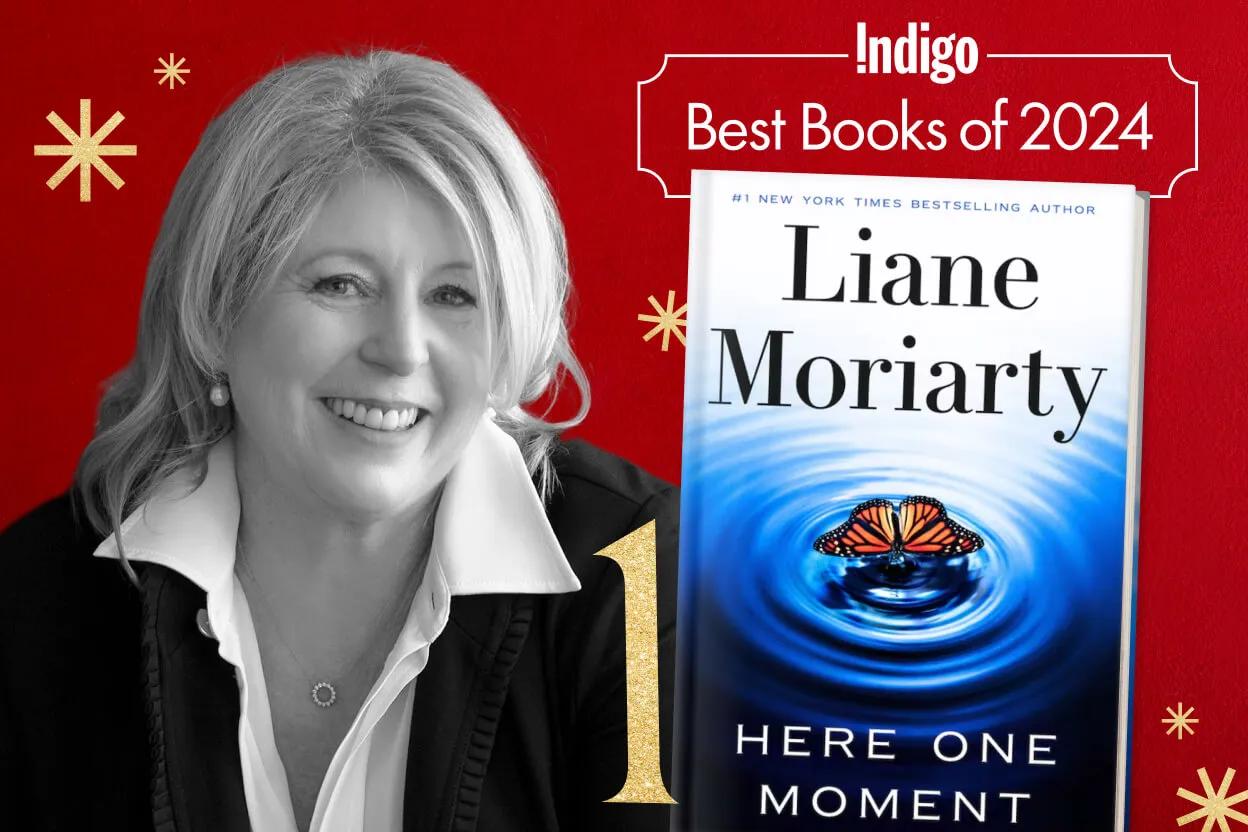I was delighted and amazed to learn that Indigo had chosen my 10th novel, Here One Moment, as their Best Book of the Year. I’ve always been grateful for the support Indigo has shown my books in Canada, but this selection is a true honour. It means the world to me.
Here One Moment has such a relatable opening, as strangers find themselves commiserating over being stuck on a delayed fight. Was there a particular event that inspired this opening?
“I came up with the idea for Here One Moment during a long flight delay at Hobart Airport in Tasmania. All the passengers had boarded the plane when the pilot asked for our patience as there was an issue that needed to be resolved … The upshot was that we were stuck on the tarmac, seatbelts buckled, waiting, waiting, waiting for an excruciatingly long time. I was travelling on my own and had no book to read and that’s when this cheerful thought popped into my head: Every person on this plane will one day die. But when? And how? I looked around at my fellow passengers and thought, Will that little girl live until she’s 100? Will that young man have his life cut short? What about that beautiful flight attendant?
It occurred to me that somewhere in the far-off future the answers to all those questions would be available. I thought, What if that information was available NOW? What if someone walked down the aisle telling every passenger how and when we would die? And what if those predictions came true? When the flight finally took off and passengers applauded with relief, I knew I had a good opening scene for a novel.”
The “butterfly effect” is a common theme in this book, and our readers would love to know the series of events that led to your decision to become a writer. Did you always know you wanted to write?
“Twenty years ago, I got a phone call that would change my life. It was my sister calling to tell me that her YA novel, Feeling Sorry for Celia, had been accepted for publication. My sister and I had always wanted to be authors. When we were children, our dad would commission us to write novels for him. At the time of my sister’s phone call, I was working as a freelance advertising copywriter … Although I occasionally wrote short stories and first chapters of novels that didn’t go any further, I’d let my childhood dream slide. My sister’s news was the inspiration I needed to get me back to the keyboard. In a fever of sibling rivalry, I wrote a children’s book which was enthusiastically rejected by every publisher in Australia. I calmed down, and two years later, my first novel, Three Wishes, was published around the world.”
The concept of fate vs. free will is prevalent in this book. Are you a believer in destiny?
“I think nothing is predetermined and our destinies are constantly changing depending on the decisions we, and the people around us, choose to make.”
What would you do if you knew when you would die?
“Well, it would depend on how much time I was given, but if it was only a short time I would just want to spend time with the people I love and be grateful for every day that I had. I suspect I would also be looking for a last-minute reprieve: a second opinion, a new kind of treatment, a trial of a brand-new drug. It’s very hard to imagine reaching a kind of acceptance of my fate, although I know many people do, and face a terminal diagnosis with strength, grace, and humour.”
What do you hope readers take away from the book?
“I feel like every reading experience is so different. Some people will find the book an entertaining page-turner on holiday. Some people might take away some kind of profound message. Some people might need a distraction during a difficult time. I don’t mind, I just hope they like the book.”

